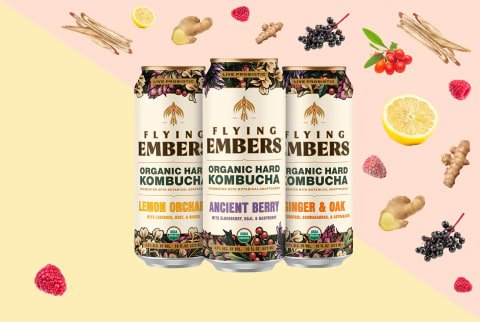They’re not super widespread right now, but you’ll probably start seeing hard kombuchas at your local liquor stores and trendy bars (think: the ones with the great craft beer selections) soon. A few brands are available at some online alcohol retailers, too. Even cooler: The kombucha is fermented with an adaptogenic base of ginger, turmeric, ashwagandha, and astragalus. This brand also clocks in at 4.5 percent ABV, about that of a light beer, which is just my style. The verdict? These are good. They tasted like a kombucha with a more complex, funky flavor and subtle boozy notes—similar to a fruity dry cider or tangy wild ale. The most surprising part? A sticker slapped on the front of the bottle proudly proclaimed “0 g sugar,” which means the sugar was essentially all fermented away to boost the alcohol content. You’d never know it, though—the combo of fruits and herbs and organic acids (which provide a nice tang) create big flavor and the illusion of sweetness. But does the alcohol kill the probiotics, you might ask? “I don’t believe it affects the probiotics,” says Largeman-Roth. “I researched this last year when I was looking into a hard kombucha brand. The thing you need to keep in mind is that it has to stay in refrigeration for the probiotics to be live and effective. You can’t leave a six-pack out on the counter like you can with beer.” As for other perks, it’s hard to say, but they’re likely similar to those of regular kombucha, like polyphenol compounds and glucaric acid, which provides important support for detoxification. Gut health affects everything in your body, so balancing it, and understanding yours is key to a good quality of life. Bottom line: Hard kombucha is super tasty, relatively light, and a fun way to mix things up. The potential benefits are probably relatively minimal, though, so don’t expect them to cancel out the alcohol—you can still get a hangover!





